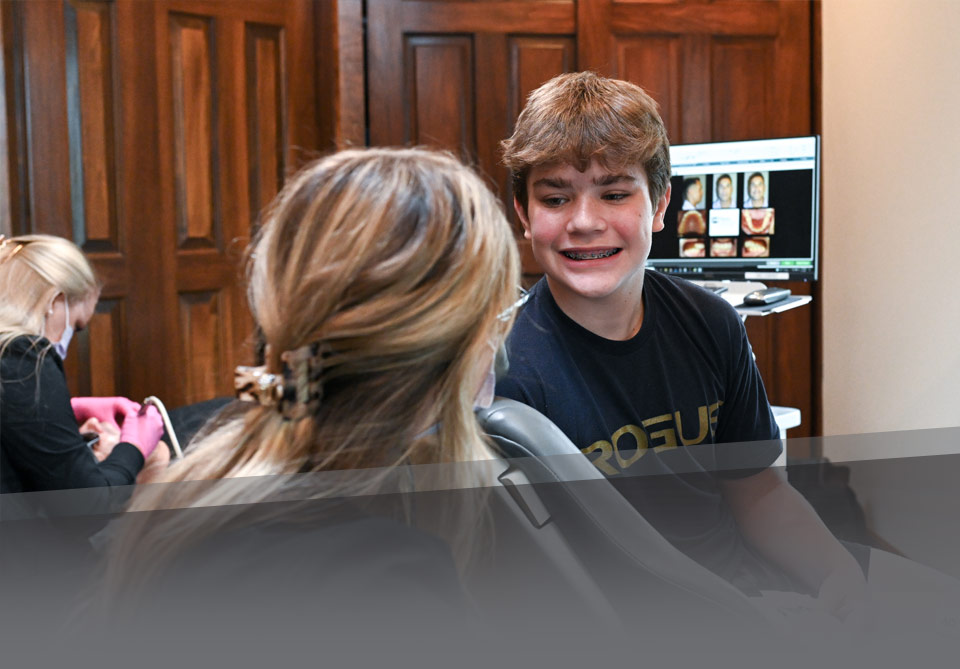FAQs
When it comes to orthodontics, treatment, or retention, you may have questions. Read on for answers to our most frequently asked questions!

What is orthodontics?
Orthodontics is a specialized field of dentistry that focuses on diagnosing, preventing, and treating dental and facial abnormalities. A person might have crooked teeth, an overbite, an underbite, or crowding that can cause problems with eating or speaking. With orthodontic treatment, the position of a person’s teeth and bite can be corrected for both cosmetic and health benefits.
How long does treatment take?
Will braces interfere with extracurriculars, like playing sports or a musical instrument?
What is an orthodontist?
An orthodontist is a specialist in the field of dentistry. After completing dental school, orthodontists go on for an additional two to three years of graduate training in orthodontics. Orthodontists diagnose and correct misaligned teeth and bites, which could cause greater health problems if left untreated.
What can you eat with braces?
Do braces hurt?
With dramatic technical advancements in orthodontics, having braces is easier and more comfortable than ever. When you first get your braces, you may feel some minor discomfort from the slight pressure that helps your teeth move. But braces should not be painful. If you are experiencing serious pain with your braces, contact your orthodontist immediately. For minor discomfort, your orthodontist will give you wax to place over areas that may experience a little irritation as your gums, lips, and cheeks adjust to the new appliances.
How much do braces cost?
What will my smile look like?
What is the best age to see an orthodontist?
How do you take care of your teeth during treatment?
Request an Appointment
Phone
Hours
8:00a - 5:00p
Monday, Tuesday & Thursday
7:30a - 4:30p
Wednesday & Friday
